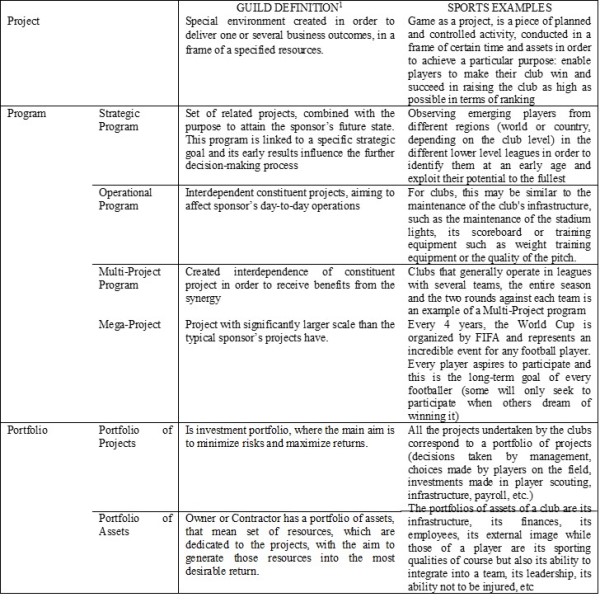Contract negotiation
STUDENT PAPER
By William Vermersch
SKEMA Business School
Lille, France & Germany
ABSTRACT
The objective of this paper was to understand the conflicts between clubs and athletes, particularly on contract negotiation, and also to analyze the different alternatives for resolving an emerging conflict. Indeed, conflicts are regular in this environment and not always well negotiated by both parties, which sometimes harms internal club relations. Can conflicts in contract negotiations lead to a deadlock in the project of clubs and players?
In order to address this issue, we have focused at the heart of this paper on understanding and analyzing the most appropriate alternative for conflict resolution. We performed a root case analysis to find the most important cause. Since then, we have used specific tools and techniques such as a non-compensatory model, a multi-attribute decision making grid, a matrix analysis and an additive weighting technique model. Thanks to these tools we were able to establish a ranking of scoring attributes, alternatives and we were finally able to find the best alternative dispute resolution. Then we built a Pareto analysis to highlight the impact of conflicts with and without prevention.
At the end of my paper, we discovered that Prevention was the best alternative resolution thanks to many features in the following paper. Other alternatives remain of course interesting to resolve conflicts such as standing neutral or non-binding solution.
Key words: Players, Clubs, Trainers, Salaries, Disputes, Meetings, Solutions, Sport Management, Negotiations, Interests, Clashs
INTRODUCTION
High-level sports have the same complexity as many other project portfolios and are perfectly aligned with the Guild’s definitions:

Figure 1: Club as a project portfolio[1]
By talking more precisely about the assets of sport, we can also divide them into five types:

Figure 2: The assets of the club[2]
“Driven by strong growth (estimated at nearly 4% per year since 2010), the global sports market continues to expand, in line with its development in emerging markets, Asia, the Middle East and Latin America. The rapid growth in its turnover and its international development make the sports sector particularly attractive, as evidenced by the worldwide increase in events such as trade fairs, forums, conferences and international summits dedicated to the sports economy and its many markets: equipment (equipment, textiles, etc.), sports events, sports marketing, speakers, new technologies, media and sports betting”[3].
More…
To read entire paper, click here
Editor’s note: Student papers are authored by graduate or undergraduate students based on coursework at accredited universities or training programs. This paper was prepared as a deliverable for the course “International Contract Management” facilitated by Dr Paul D. Giammalvo of PT Mitratata Citragraha, Jakarta, Indonesia as an Adjunct Professor under contract to SKEMA Business School for the program Master of Science in Project and Programme Management and Business Development. http://www.skema.edu/programmes/masters-of-science. For more information on this global program (Lille and Paris in France; Belo Horizonte in Brazil), contact Dr Paul Gardiner, Global Programme Director paul.gardiner@skema.edu.
How to cite this paper: Vermersch, W. (2019). A cause of many conflicts between clubs and athletes: Contract negotiation, PM World Journal, Vol. VIII, Issue VI, July. Available online at https://pmworldlibrary.net/wp-content/uploads/2019/07/pmwj83-Jul2019-Vermersch-cause-of-many-conflicts-between-clubs-and-athletes.pdf
About the Author

William Vermersch
Frankfort, Germany
Lille, Fance
![]()
![]()
William Vermersch is currently a Master’s degree student at SKEMA Business School on the Lille Campus. William comes from Orsay, he was born in 1996, and has been living in Lille for 3 years. At first, he lived in Orsay, then moved to Troyes in order to attend 2 years of Preparatory Classes, and he was able to enter SKEMA Business School. Previously, he has served as a Project Manager during an entire year running as Vice- President of the Sports Student Office at SKEMA Business School. He is currently doing an internship in Germany in Frankfurt as part of his graduation as a Business Developer in Bettzeit Group. He is moving towards an international sales career and is looking for opportunities in particular in the automotive sector or top-level sport. Thanks to his many experiences in sports and cultural associations, William is a real asset within a group and will be able to adapt to any type of professional situation. He is a certified AgilePm Practitioner. Contact him on: william.vermersch@skema.edu or vermersch.william@gmail.com.
[1] By author
[2] By author
[3] No author : http://www.sports.gouv.fr/organisation/organisation-du-sport-en-france/sporteco/Sport-a-l-export/









